Table of Contents
Intensive pronouns are used in the course of writing a simple sentence in order to add emphasis to a noun or pronoun in the sentence. They assist in making stress of who is doing something or who is participated.
Unlike with reflexive pronouns, where it is indicated that subject and object are one and the same, intensive pronouns merely emphasize on the subject.
What is an Intensive Pronoun?
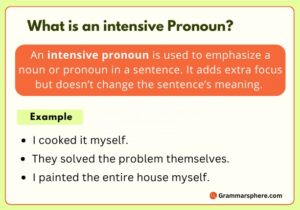
An intensive pronoun is used to emphasize a noun or pronoun in a sentence. It adds extra focus but doesn’t change the sentence’s meaning. Intensive pronouns are not necessary for the sentence but highlight a specific part of it.
Example Sentences:
I cooked it myself.
(myself emphasizes that I cooked it alone.)
He built it himself.
(himself emphasizes that he built it alone.)
I did it myself.
( myself emphasizes that I did it alone.)
Usage of Intensive Pronouns
Intensive pronouns are used in sentences to emphasize a noun or pronoun, giving extra attention to the subject of the sentence. They are similar to reflexive pronouns but serve a different purpose.
While reflexive pronouns reflect the action to the subject, intensive pronouns simply emphasize it and can be removed without changing the sentence’s core meaning.
To emphasize the subject:
Intensive pronouns are placed immediately after the noun or pronoun they emphasize, showing that the subject performed the action alone or personally.
- I painted the entire house myself.
(Emphasizing that I did it alone.)
- They solved the problem themselves.
(Emphasizing that they did it without help.)
In a formal or serious tone:
Intensive pronouns can add a more serious or formal tone to statements or claims.
- The CEO himself gave the speech.
(Emphasizing the CEO’s personal involvement.)
- The author herself attended the event.
(Emphasizing the author’s personal presence.)
For emphasis on storytelling or explanation:
Intensive pronouns help draw attention to a specific action or event.
- I wrote the novel myself.
(Emphasizing personal effort.)
- They organized the charity event themselves.
(Emphasizing that they took care of everything on their own.)
Intensive vs. Reflexive Pronouns
Reflexive Pronouns:
Reflexive pronouns are used when the subject and the object of a sentence are the same person or thing. They reflect the action back onto the subject.
- I hurt myself while cooking.
- She taught herself to play the piano.
- They prepared themselves for the exam.
Intensive Pronouns:
Intensive pronouns emphasize the subject and are not necessary for the sentence’s meaning. They can be removed without changing the core meaning of the sentence.
- I myself finished the project.
- The president himself gave the speech.
- She herself cooked the meal.
Example Sentences with intensive Pronouns
Here are the 10 example sentences with the intensive pronouns highlighted:
- I finished the report myself.
- She painted the entire house herself.
- The CEO himself approved the decision.
- We will solve this problem ourselves.
- John fixed the car himself.
- They completed the project themselves.
- The teacher herself explained the concept clearly.
- I designed the website myself.
- You should do it yourself if you want it done right.
- The author himself attended the book signing event.
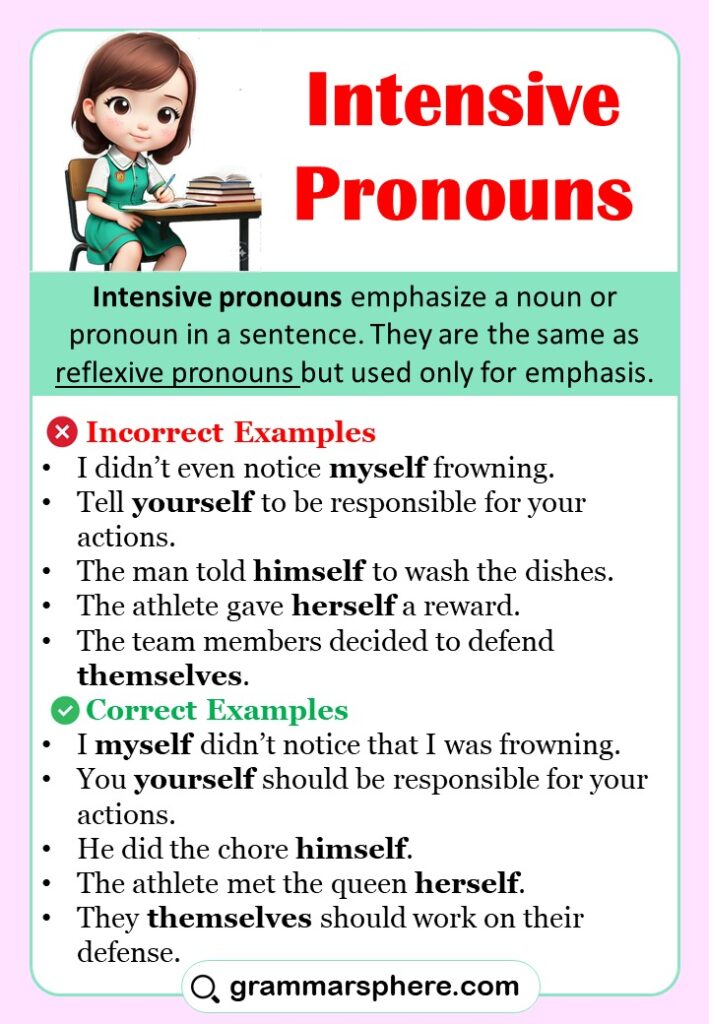
Why Intensive Pronouns Are Important
Here are two good reasons to care when using intensive pronouns:
Reason 1: Use intensive pronouns for clear emphasis:
Intensive pronouns are used to emphasize a noun or pronoun that comes before them, often clarifying or intensifying the statement.
- I made the cake myself.
The word myself emphasizes that the speaker personally made the cake.
Reason 2: Prevent errors with myself:
Using myself correctly helps prevent errors. Many people misuse myself where I or me is appropriate, such as saying:
❌ My friends and myself went to the park.
✅ My friends and I went to the park.
Here: myself should be used for emphasis or when the subject and object are the same, like in I taught myself to play guitar. Correct usage enhances clarity in communication.
Common Mistakes
Another danger that one can face when using intensive pronouns is using them wrong or, on the contrary, using them where they are not needed at all. One error is confusing them with reflexive pronouns.
Confusing with reflexive pronouns:
❌ Incorrectly: She bought a gift for myself.
✅ Correctly: She bought a gift for me.
Redundant use:
❌ Incorrectly: I did the work myself by myself.
✅ Correctly: I did the work myself.
Incorrect placement:
❌ Incorrectly: Myself, I did the work.
✅ Correctly: I did the work myself..
Unnecessary use:
❌ Incorrectly: I myself can do this task without help.
✅ Correctly: I can do this task without help
Overemphasis:
❌ Incorrectly: I will handle this issue myself personally.
✅ Correctly: I will handle this issue myself.
You May Also Like

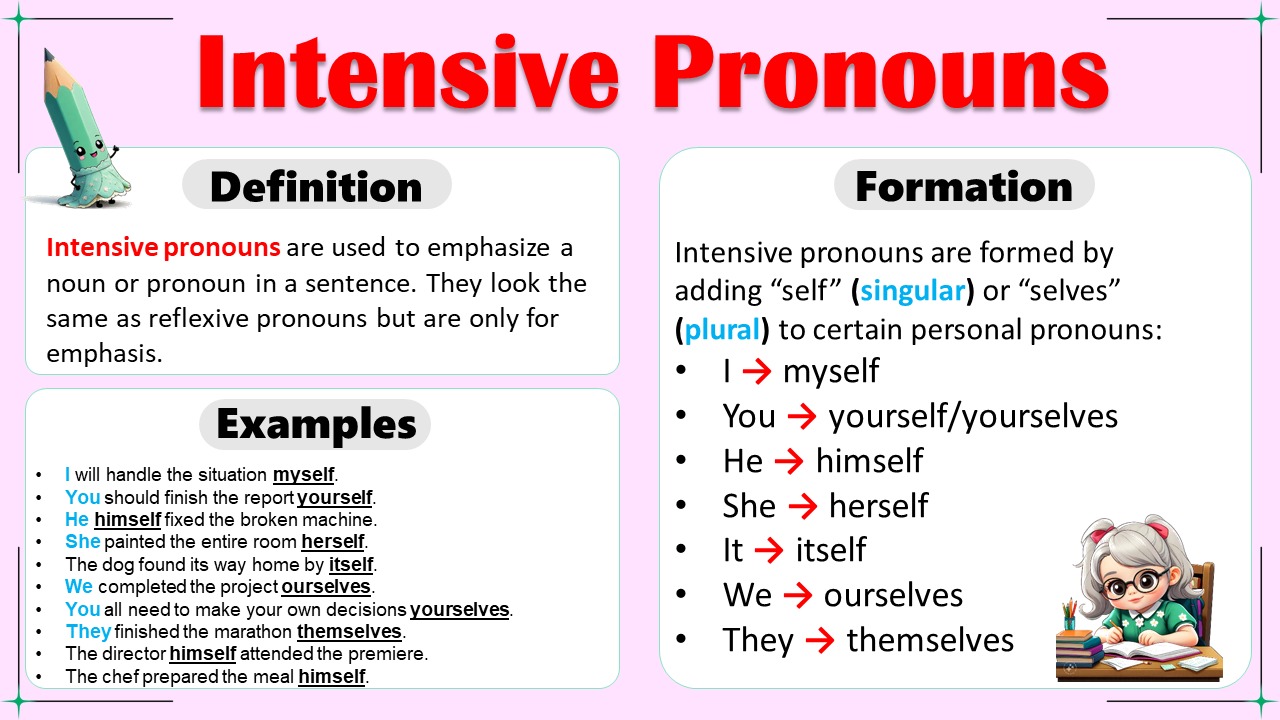
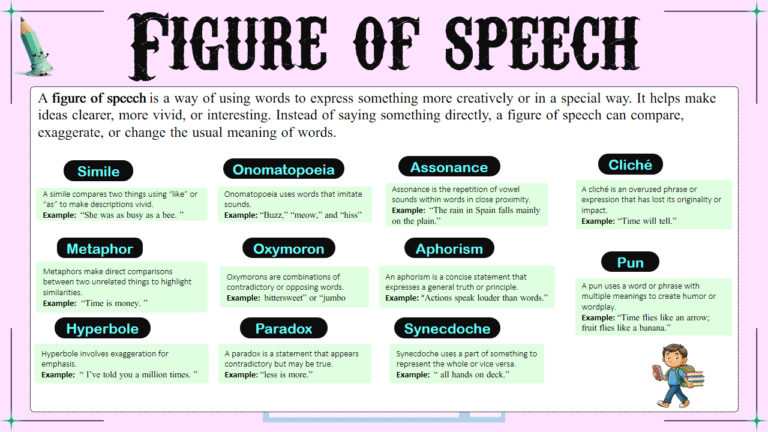
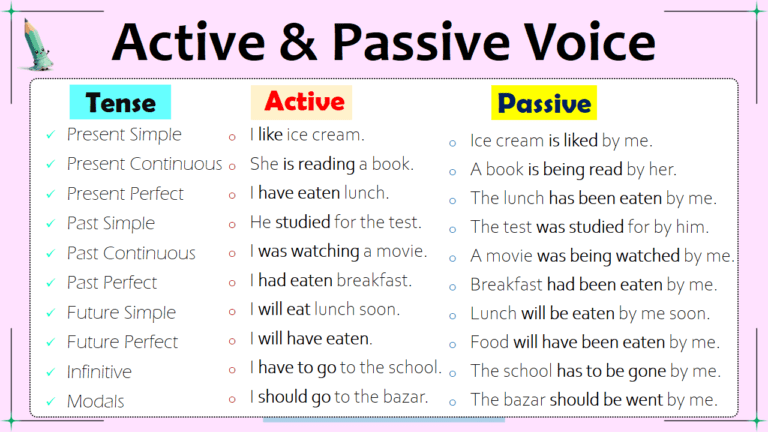
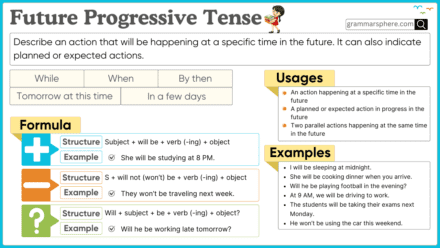
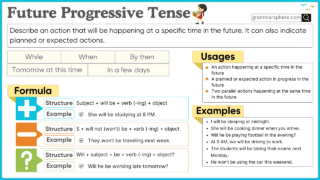
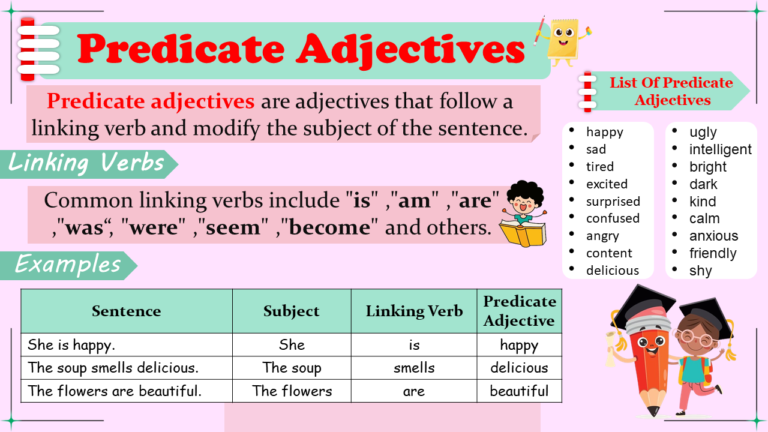
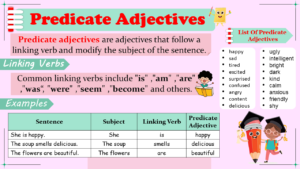
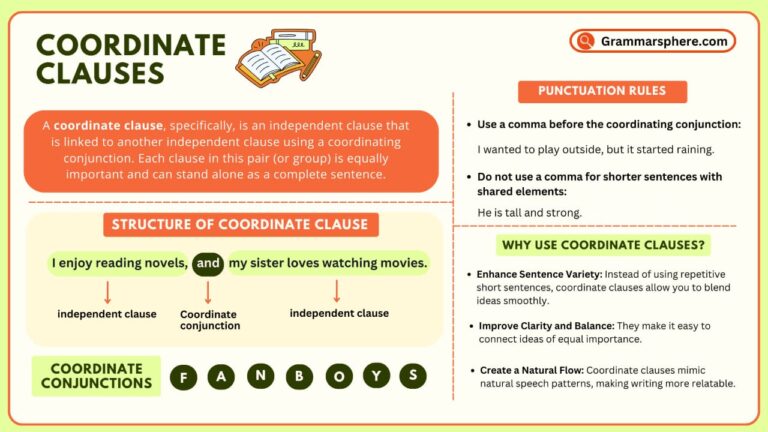

Leave a Comment